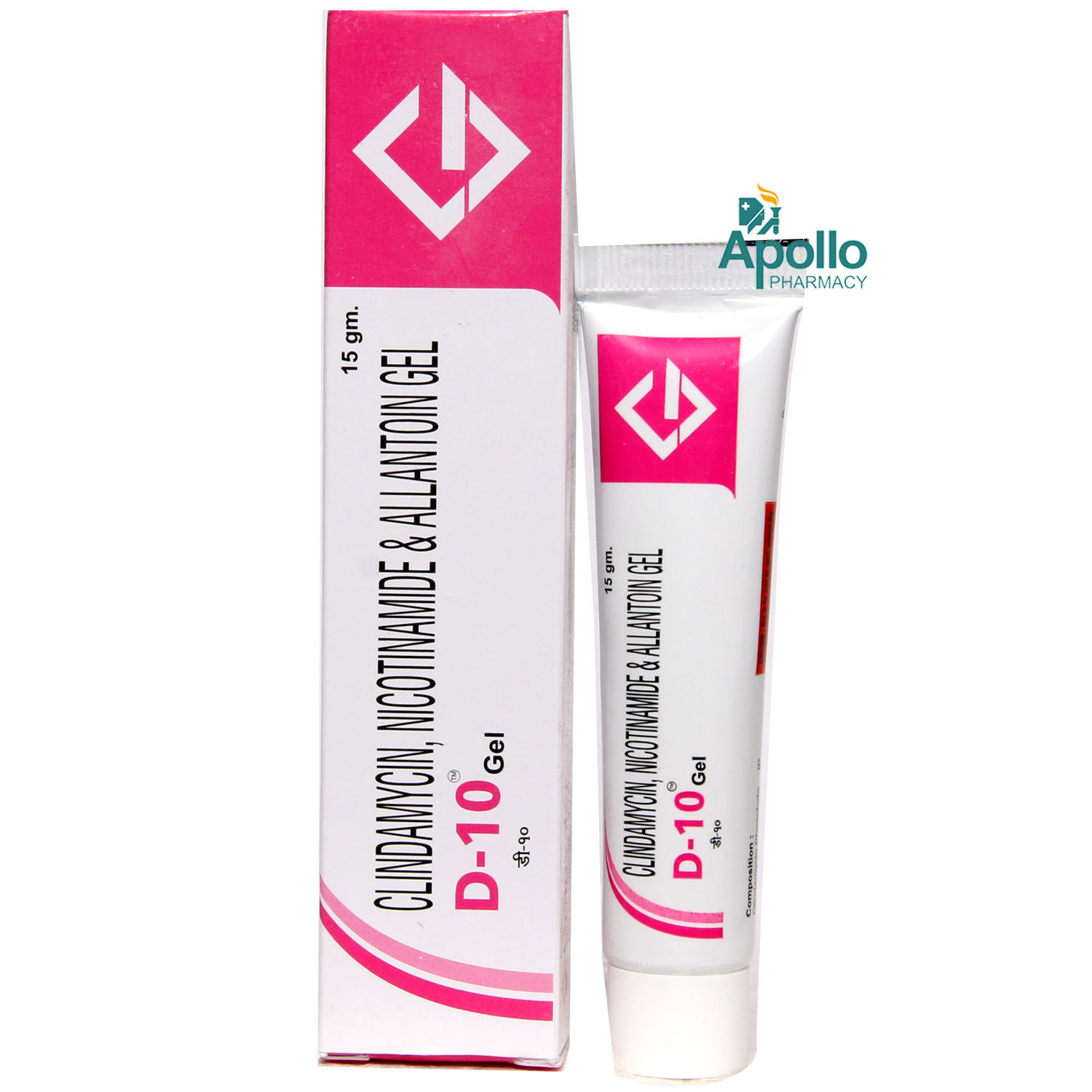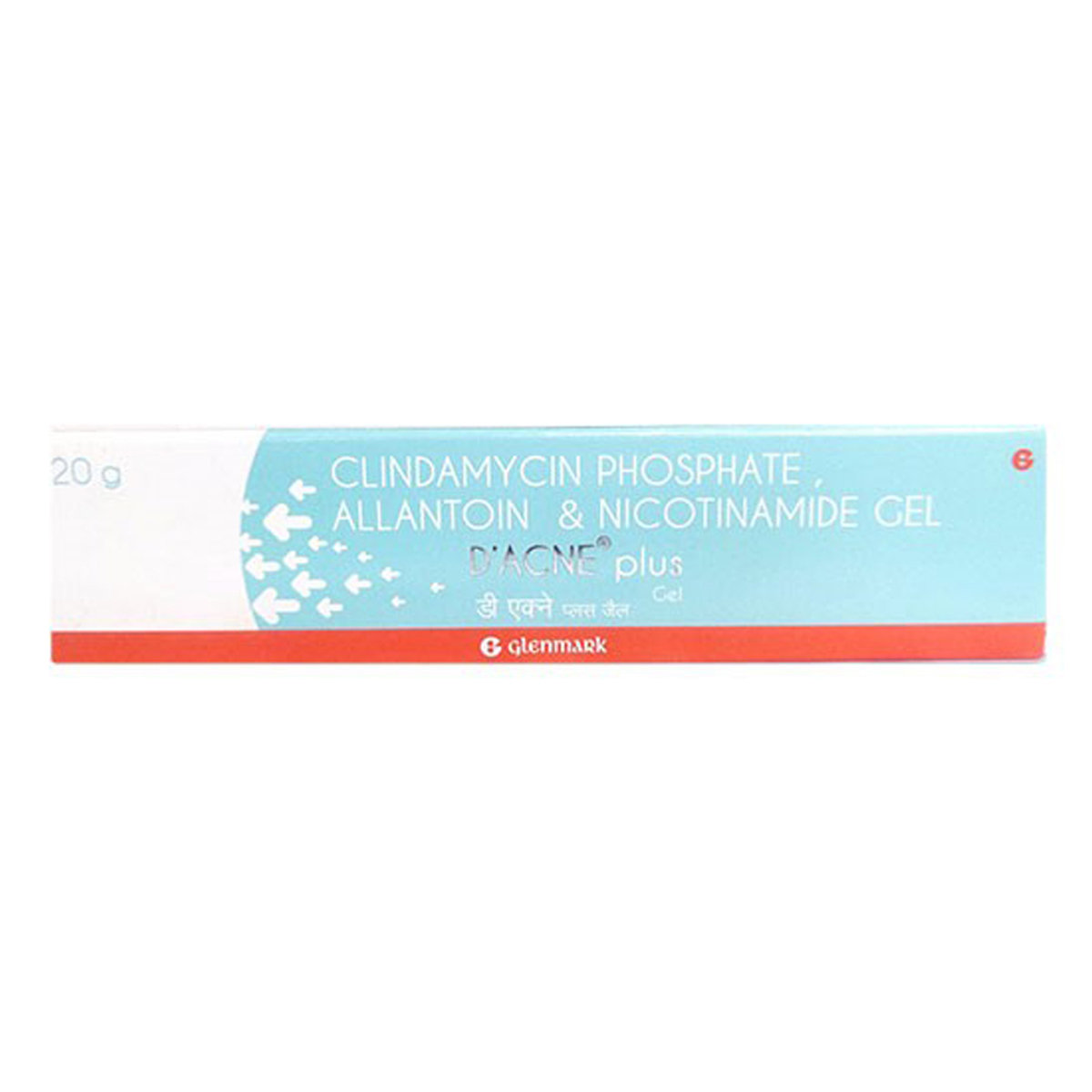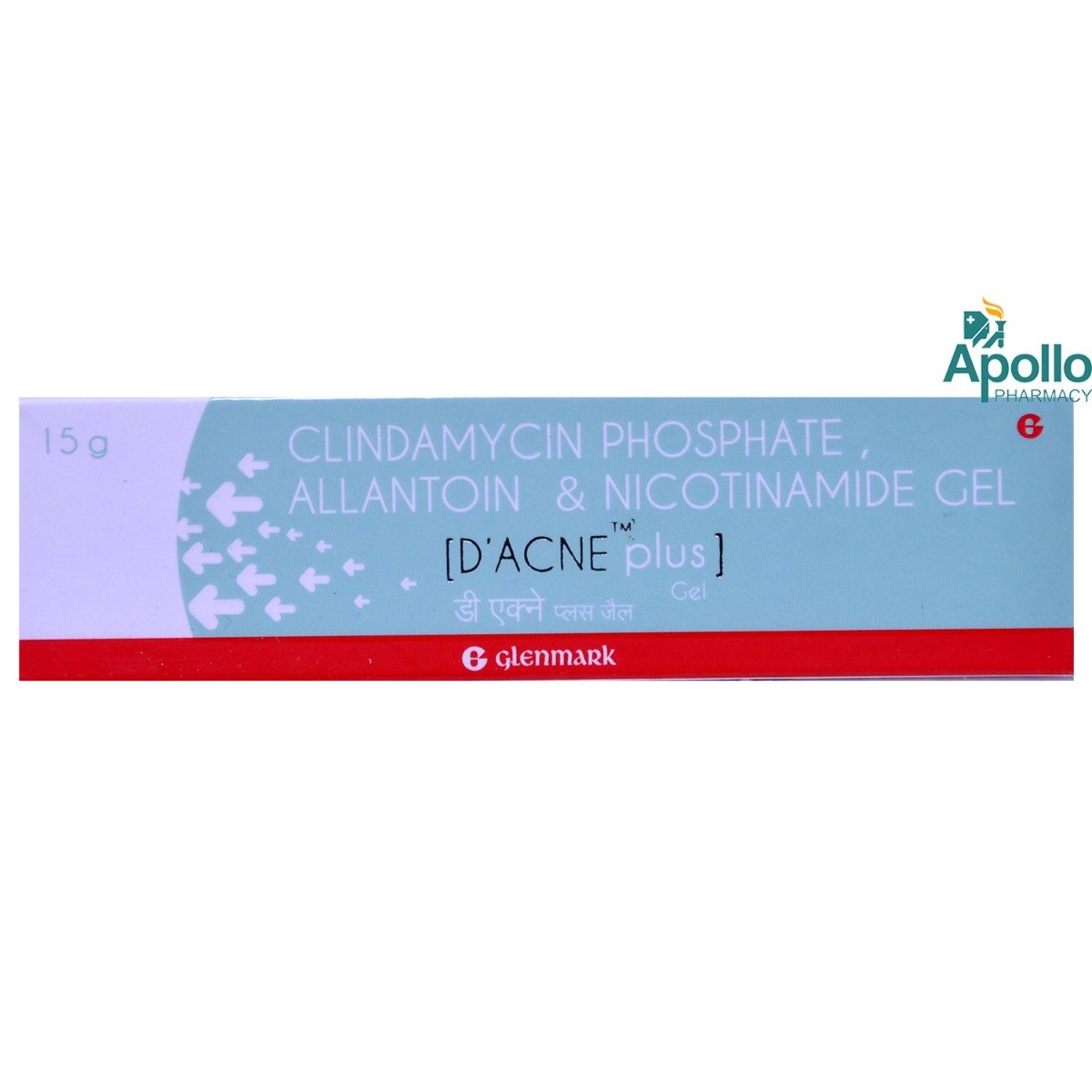Top-C Gel 20 gm
MRP ₹107.5
(Inclusive of all Taxes)
₹16.1 Cashback (15%)
Provide Delivery Location
Online payment accepted
 Prescription drug
Prescription drugWhats That
Manufacturer/Marketer :
Consume Type :
Expires on or after :
Return Policy :
About Top-C Gel
Top-C Gel belongs to the class of drugs known as 'antibiotics', primarily used to treat inflamed acne. It minimizes the formation of excessive natural oil, known as sebum. It also reduces swelling caused due to acne. Acne is a skin-related problem in which the skin's oil glands (sebaceous glands) become clogged, thereby forming pimples and sometimes cysts.
Top-C Gel is composed of two medicines: Clindamycin, Nicotinamide, and Allantoin. Clindamycin is a lincomycin antibiotic that penetrates the skin and kills acne-causing bacteria. Nicotinamide is a form of vitamin B responsible for exerting anti-inflammatory effects applied to the skin. Allantoin is a moisturizing agent that forms an oily layer on the top of the skin that traps in the water. Thereby moisturizing the outermost layer of skin and making it smoother and softer. Also, it breaks down a protein known as keratin (that forms part of skin structure), removes dead skin cells, and softens skin. Altogether it stops or slows down the growth of bacteria and prevents the growth of acne.
Top-C Gel should be used in quantity advised by the doctor. It is only meant for external use. It should be applied in sufficient quantity enough to cover the affected area. Wash your hands before and after using this medicine. If it accidentally comes into contact with your eyes, nose, mouth, or other sensitive areas, immediately rinse it with water. In some cases, you may experience irritation, dryness, peeling, redness, and a burning sensation at the application site. Most of these side effects of Top-C Gel do not require medical attention and gradually resolve over time. However, if the side effects are persistent, reach out to your doctor. It is advised to use a skin moisturizer and drink plenty of water to prevent side effects.
Do not stop using this medicine without consulting your doctor. Inform your doctor if you are pregnant or breastfeeding. Also, if you are allergic to this medicine, please tell your doctor. Avoid touching, picking, or scratching the infected area to prevent acne from worsening. It is advised to avoid unnecessary sun exposure and before stepping out in the sun, use sunscreen. Do not use cosmetic products or perform cosmetic procedures in the affected area without consulting your doctor.
Uses of Top-C Gel
Directions for Use
Key Benefits
Top-C Gel contains Clindamycin, Nicotinamide (Vitamin B3), and Allantoin. Clindamycin is a well-known bacteriostatic antibiotic that treats acne, bacterial infection, and scars and is suitable for both dry and wet skin. The topical application of clindamycin helps heal acne by killing the acne-causing bacteria and prevents further bacterial skin infections. Nicotinamide is a synthetic form of Vitamin B3 that stimulates ceramide (fats found on the uppermost layer of the skin) synthesis and improves the epidermal permeability barrier functions, making skin look supple and soft. Allantoin is a moisturizing agent that forms an oily layer on the top of the skin and traps it in the water. Thereby moisturising the outermost layer of skin and making it smoother and softer. Also, it breaks down a protein known as keratin (that forms part of skin structure), removes dead skin cells, and softens skin. Altogether, it stops or slows down bacteria's growth, causing acne, and heals the skin by reducing swelling and redness.
Storage
- Apply moisturizer immediately after showering or bathing.
- Use a moisturizer containing lanolin, petroleum jelly, glycerine, hyaluronic acid or jojoba oil.
- Do not use hot water for bathing. Instead use warm water and limit showers and bath to 5 to 10 minutes.
- Apply a sunscreen with SPF-30 or higher.
- Avoid harsh soaps, detergents and perfumes.
- Do not scratch or rub the skin.
- Drink adequate water to prevent dehydration.
- Wear pants, full sleeves and a wide-brimmed hat while going out in the sun.
- Consult your doctor if you experience skin redness, itching, or irritation after taking medication.
- Your doctor may adjust your treatment plan by changing your medication or providing guidance on managing your erythema symptoms.
- Your doctor may recommend or prescribe certain medications to help alleviate symptoms.
- Apply cool compresses or calamine lotion to the affected skin area to reduce redness and itching.
- Stay hydrated by drinking plenty of water to help alleviate symptoms and keep your skin hydrated.
- Monitor your skin condition closely and promptly report any changes, worsening symptoms, or concerns to your healthcare provider.
- Stop taking the medication you suspect for causing a burning sensation and talk to your doctor about other treatment options.
- Use creams or ointments with corticosteroids on the affected area to help reduce swelling and itching.
- Stay out of the sun and avoid extreme temperatures, as they can make the burning sensation worse.
- Applying a cool compress to the area can help soothe it temporarily.
- Drink lots of fluids or water to keep your skin hydrated.
- Avoid harsh soaps, strong chemicals, hot water, and tight clothing that can irritate your skin.
- Eat foods that are high in antioxidants and omega-3 to help keep your skin healthy.
- Report the itching to your doctor immediately; they may need to change your medication or dosage.
- Use a cool, damp cloth on the itchy area to help soothe and calm the skin, reducing itching and inflammation.
- Keep your skin hydrated and healthy with gentle, fragrance-free moisturizers.
- Try not to scratch, as this can worsen the itching and irritate your skin.
- If your doctor prescribes, you can take oral medications or apply topical creams or ointments to help relieve itching.
- Track your itching symptoms and follow your doctor's guidance to adjust your treatment plan if needed. If the itching persists, consult your doctor for further advice.
Drug Warnings
Top-C Gel is meant for only topical use and not for oral, ophthalmic, or intravaginal use. You should not use a Top-C Gel if your skin is very sensitive or allergic to Top-C Gel or lincomycin class antibiotic. Do not apply Top-C Gel on the cut, scraped, sunburned, or eczema-affected skin part. If accidentally Top-C Gel gets into your eyes, immediately rinse your eyes with water thoroughly and contact your doctor immediately if the irritation persists. Inform your doctor if your skin conditions do not improve. Top-C Gel may take time to treat acne, so do not apply a dosage more than prescribed for better and faster results. If you are pregnant, planning for pregnancy, or a nursing mother, consult your doctor before using Top-C Gel. Using dermatological products other than Top-C Gel may lead to unfavourable results like excessive skin drying, peeling, irritation, etc. In this case, consult your doctor about how much medicine should be used to treat acne.
Drug-Drug Interactions
Drug-Drug Interactions
Login/Sign Up
Drug-Food Interactions
Drug-Food Interactions
Login/Sign Up
Diet & Lifestyle Advise
- Avoid sun exposure while using Top-C Gel as it may make the skin more sensitive to sunlight and cause sunburn. Wear protective clothing and sunscreen while going out to protect your skin from sunburn.
- Regular exercise can improve your mood and self-esteem though it doesn’t clear acne. Take a shower immediately after finishing exercise, as sweat may irritate acne.
- Do regular hair wash regularly and avoid hair falling across the face.
- Remove the makeup completely before going to bed.
- Avoid using products that may cause skin irritation, such as harsh soaps, skin cleansers, shampoos, hair removers or waxes, hair colouring or permanent chemicals, detergents, and rough fabrics.
Side Effects of Top-C Gel
- Irritation
- Dryness
- Peeling
- Redness
- Burning sensation at the application site
Habit Forming
Therapeutic Class
All Substitutes & Brand Comparisons
RX
D-10 Gel 15 gm
Granvalor Pharmaceuticals Pvt Ltd
₹98
(₹5.88/ 1gm)
21% COSTLIERRX
D Acne Plus Gel 20 gm
Glenmark Pharmaceuticals Ltd
₹232.5
(₹10.47/ 1gm)
116% COSTLIERRX
D Acne Plus Gel 15 gm
Glenmark Pharmaceuticals Ltd
₹232.5
(₹13.95/ 1gm)
188% COSTLIER
Drug-Diseases Interactions
Drug-Diseases Interactions
Login/Sign Up
FAQs
You are advised to use other acne products with Top-C Gel cautiously as some products may increase side effects. It is recommended to use Top-C Gel at night and other products in the morning. However, please consult a doctor before using any other medicines or products with Top-C Gel.
No, Top-C Gel is not recommended for patients with eczema (itchy, cracked, swollen, or rough skin) as it may increase the risk of severe irritation. Therefore, if you are suffering from eczema, inform your doctor before using the Top-C Gel.
Yes, the Top-C Gel may cause skin irritation or sensitivity as a side effect. However, if the irritation persists or worsens, stop using Top-C Gel and consult a doctor.
Yes, Top-C Gel may cause photosensitivity (increased skin sensitivity to sunlight) in the treated areas. Therefore, avoid or limit exposure to sunlight and sunlamps. You are advised to use sunscreen and wear protective clothing while going out to prevent sunburn.
The precautions which should be taken while using Top-C Gel are to avoid showering/bathing for at least 1 hour after the application. Avoid contact of Top-C Gel with eyes and mucous membranes. Other topical products such as cosmetics, lotions, insect repellants, moisturizers, or other topical medications should be avoided. Avoid unnecessary sun exposure, and apply sunscreen if you have to go out in the sun.
Drug-Drug Interactions Checker List
- CLARITHROMYCIN
- RIFAMPICIN
- ERYTHROMYCIN
- INDINAVIR
- NELFINAVIR
- RITONAVIR
- ITRACONAZOLE
- KETOCONAZOLE
- NEFAZODONE
- ATRACURIUM
- CISATRACURIUM
- DOXACURIUM
- METOCURINE
- MIVACURIUM
- PANCURONIUM
- SUCCINYLCHOLINE
Special Advise
- Top-C Gel is for external use only, and contact should be avoided from the eyes and mucous membranes, including those of the nose and mouth. Please consult your doctor in case of excessive dryness, irritation, or peeling of the skin.
- Please inform your doctor if your infected skin area does not improve after four weeks of treatment.
- Limit your time in sunlight exposure and avoid skin tanning booths and sunlamps. Also, wear sunscreen lotion (or SPF) and wear protective clothing outdoors.
- You are advised to apply any other lotions, creams, or ointments, including cosmetics and moisturizers, after 30 minutes of applying Top-C Gel, as using both simultaneously may reduce the effectiveness of Top-C Gel.
- Avoid contact of Top-C Gel with nose, mouth, eyes, or ears. In case Top-C Gel comes in contact with these areas accidentally, rinse with water.
- Do not squeeze, pop or pick spots, as it may worsen them and cause permanent scarring.
Disease/Condition Glossary
Acne or acne vulgaris: Acne or acne vulgaris is a long-term skin problem caused when hair follicles become plugged with oil and dead skin cells. It leads to blackheads, whiteheads, pimples, oily skin, and a scar on the uppermost layer of the skin (epidermis).

Have a query?
Alcohol
Safe if prescribed
There are no interactions found with Top-C Gel pertaining to alcohol. However, it is advised to avoid alcohol for a speedy recovery.
Pregnancy
Consult your doctor
There are no well-established clinical studies with Top-C Gel in pregnant women. Hence, Top-C Gel should be used during pregnancy only if clearly needed. Consult your doctor before taking this medicine.
Breast Feeding
Consult your doctor
Top-C Gel is safe to use in breastfeeding. However, please inform your doctor that you are breastfeeding if you are prescribed Top-C Gel.
Driving
Safe if prescribed
There are no effects found of Top-C Gel on driving capabilities.
Liver
Consult your doctor
There are no interactions found with the Top-C Gel pertaining to the liver. However, please inform your doctor if you are suffering from or have suffered from liver diseases.
Kidney
Consult your doctor
There are no interactions found with Top-C Gel pertaining to the kidney. However, please inform your doctor if you are suffering from or have suffered from kidney diseases.
Children
Safe if prescribed
Top-C Gel should be used in children only if prescribed by a specialist. The safety and effectiveness of Top-C Gel have not been established in children below 12 years of age.








